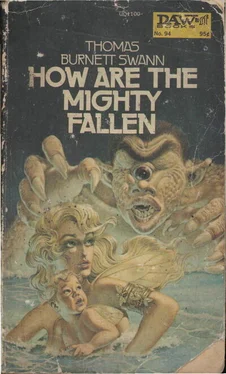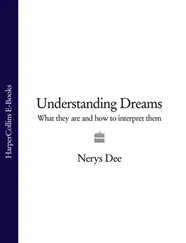Thomas Swann - How are the Mighty fallen
Здесь есть возможность читать онлайн «Thomas Swann - How are the Mighty fallen» весь текст электронной книги совершенно бесплатно (целиком полную версию без сокращений). В некоторых случаях можно слушать аудио, скачать через торрент в формате fb2 и присутствует краткое содержание. Жанр: Фэнтези, на английском языке. Описание произведения, (предисловие) а так же отзывы посетителей доступны на портале библиотеки ЛибКат.
- Название:How are the Mighty fallen
- Автор:
- Жанр:
- Год:неизвестен
- ISBN:нет данных
- Рейтинг книги:4 / 5. Голосов: 1
-
Избранное:Добавить в избранное
- Отзывы:
-
Ваша оценка:
- 80
- 1
- 2
- 3
- 4
- 5
How are the Mighty fallen: краткое содержание, описание и аннотация
Предлагаем к чтению аннотацию, описание, краткое содержание или предисловие (зависит от того, что написал сам автор книги «How are the Mighty fallen»). Если вы не нашли необходимую информацию о книге — напишите в комментариях, мы постараемся отыскать её.
How are the Mighty fallen — читать онлайн бесплатно полную книгу (весь текст) целиком
Ниже представлен текст книги, разбитый по страницам. Система сохранения места последней прочитанной страницы, позволяет с удобством читать онлайн бесплатно книгу «How are the Mighty fallen», без необходимости каждый раз заново искать на чём Вы остановились. Поставьте закладку, и сможете в любой момент перейти на страницу, на которой закончили чтение.
Интервал:
Закладка:
“I would have died for you,” said Jonathan. “And given up my hope of the Celestial Vineyard.”
David hugged him against his breast. Whatever shadows had fallen between them dissipated like the darkness in a tent at sunrise. But the prince felt frail and chilled, though the tent was warm from the midday sun.
“Shall I get you a robe?” asked David.
“No, not yet. You be my blanket. Will you sing to me?”
“I can’t sing and be a blanket at the same time.” He did not want to sing; he wanted to warm the prince with his love,
“Sing first and then-”
“About what?”
“Your songs are usually about the valleys and the pastures of Israel. Can you sing about the sea?”
“I don’t know. I’ve never seen it and I didn’t think you had either. The Philistines have always been in the way.”
“I've seen it,” said Jonathan. “Many times. Perhaps Ashtoreth will put the words into your mouth. You know, she is the guardian of sailors as well as lovers. Poseidon raises the waves and she becalms them.”
“But our god is Yahweh.”
“Oh, him. He’s all very well in a battle. But not in a-in the kind of song I want to hear.” It was arrant heresy, the prince of Israel scorning the national god of the Israelites, but David was neither surprised nor shocked. Only the very young or the very old of Israel singlemindedly worshipped Yahweh. David’s own pantheon included the Israelite Yahweh, whom he invoked to protect his flocks, the Philistine Ashtoreth, whom he entreated to send him comely and compliant maidens, and the Midianite Sin, who, though a moon god, seemed to be good for luck in general. He excluded the fat old Baals who clamored for sacrifices of cattle to plumpen their bellies.
David wished for his harp, but the Goddess whispered a song about the sea and, of course, about Jonathan, and his voice was sweet and unfaltering:
“I saw him rising from the sea, Dagon with starfish tangled in his hair And eyes like chrysolites.
‘Come play with me, come play with me,’ he called,
‘And we will gather conchs and cockleshells!’
But liquid fields are cold;
The shark, I thought,
Will cast strange shadows at my feet
Tomorrow,‘ I said,
Tomorrow we will gather cockleshells.‘
And Dagon laughed,
Slipping with dolphin-ease between the waves.
I saw the foam possess his tangled hair.
But first he said:
‘Does dust know how to play?’“
“I was the speaker, wasn’t I?” said Jonathan. “And of course you were Dagon. But he’s the national god of the Philistines, and some of his images are gross and ugly, with a scaly fish’s tail. That’s not you at all.”
“That’s not the Dagon I mean. There’s a young Dagon, too, who likes to play with the dolphins.”
“On Caphtor we called him Palaemon. But how do you know so much about the sea?”
“I expect Ashtoreth put the thoughts in my brain.”
“Ashtoreth or my mother.”
“Sometimes I think they are one and the same. Both of them helped me in my fight against Goliath.”
“I know. David, why do you always sing about me?”
“Because I love you.”
He had never said such words, not to the comeliest virgin he had ever kissed, not even to his mother. Now he had said them to a man, though one of the gods they worshipped had presumably destroyed Sodom because its men did not always love its women. He felt as if he should blush with shame or explain that he meant only that he loved Jonathan like a brother. But he felt more pride than shame, and he did not love Jonathan like a brother.
(His father had once accused him of lacking a sense of sin. “Where would Abraham have been if he hadn’t repented his sins?” Jesse had asked in one of his more asinine moods. David had answered without hesitation. “A prince of Egypt with twenty concubines and a golden calf in his garden.”)
Now it was Jonathan’s turn to touch instead of talk; he touched David’s cheek with a tentative hand. A butterfly hand? No, there was nothing feminine in his touch. It did not seem to David that only then did they embrace as more than friends; it seemed to him that there had never been a time when they were less than lovers. Arm in arm they had crossed impassable deserts; side by side they had sailed impossible seas, farther than Sheba or Punt; beyond the edge of the world! Other lands had known them; in other times they had loved and shared the throne; the high-breasted Lady of Crete, twining snakes in her hands, had smiled beneficence on them; they were as young and as old as the pyramids.
“I know a secret place,” said Jonathan. “Not like here, in the middle of an army.‘
“Is it far?”
“As far as Ophir. As close as today.”
“Are you strong enough?”
“You will be my wings.”
“I am taking the prince for a walk,” he said to the guard outside the tent. “He must recover his strength. He can hardly stand by himself.”
The guard, a young farmer with thick, callused hands, looked at David with adoration-the killer of Goliath! — and at Jonathan with admiration-the prince of Israeli David liked him for liking Jonathan.
“No danger now,” the guard cried. “Not a Philistine in sight! Take good care of the prince, though, David. Goliath’s brothers may come this way.”
They followed the wildly meandering course of the stream. Oleanders, clustered with red blossoms, dipped their tapering fingerlike leaves into the water.
“Are we like that?” Jonathan asked his friend.
“Like what?”
“Oleanders. The leaves are smooth and straight, but the sap is poisonous.”
For answer, David led him away from the stream and into a meadow of wild flowers and totter grass.
Jonathan fell to his knees and touched the earth in silent communication with her green children. “On Crete,” he said, “the gods used to dance in dells like this, till they fled to the sky or under the sea.”
Plucking an armful of yellow parsley flowers like little shields, David handed them to Jonathan.
“You’re like these.”
“Frail, do you mean?”
“Modest, valorous, and beautiful! Except your hair makes them pale in comparison.”
The yellow flowers were mirrored in Jonathan’s eyes, stars in green firmaments. He was more than human, of course. Perhaps he was an angel or a star god. But now he had come to earth, and it was the proof of his power that he should deserve but never demand worship.
Jonathan cradled the flowers in his arms. “We must give them to the stream. It’s been a kind stream to make this vale so fruitful for us. Not even Goliath could spoil it.” It seemed as if the flowers, spun in the clear waters, were speaking to the stream, and the stream was rumbling an answer about his journey from the mountains which he loved for their snow and into the lowlands which he loved because they frolicked with chrysanthemums and anemones, poppies, and purple catchflies; about David and Jonathan and how he loved them too because they had given him flowers, when other men drank him or washed in him and never thought of a gift.
“Here,” said Jonathan, pausing and pointing excitedly to an oak tree which had probably been old when Abraham was young. Unlike the terebinth oracle, however, this tree luxuriated with fresh green foliage and offered the cumbers notches up the trunk and into the green fastnesses, which twinkled with sunlit sparrows building nests. David loved them because, in spite of their tiny, colorless bodies, they were ready to fight an eagle or a wolf. They, too, must face their Goliaths.
It was rare to find so enormous a growth in Israel, where shrubs passed for trees and whose deserts outnumbered its forests.
“You won’t make it up the trunk,” said David. “You’ve been sick and there’s nothing in your stomach.”
Читать дальшеИнтервал:
Закладка:
Похожие книги на «How are the Mighty fallen»
Представляем Вашему вниманию похожие книги на «How are the Mighty fallen» списком для выбора. Мы отобрали схожую по названию и смыслу литературу в надежде предоставить читателям больше вариантов отыскать новые, интересные, ещё непрочитанные произведения.
Обсуждение, отзывы о книге «How are the Mighty fallen» и просто собственные мнения читателей. Оставьте ваши комментарии, напишите, что Вы думаете о произведении, его смысле или главных героях. Укажите что конкретно понравилось, а что нет, и почему Вы так считаете.












